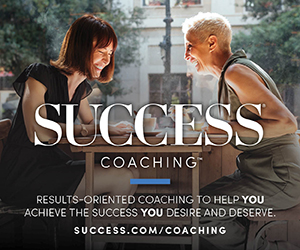Winners never quit.
That’s what most of us have been told, anyway. We have been conditioned to believe that quitting is a sign of weakness. The reality, however, is that winners quit, and they quit often. They quit what doesn’t work and what doesn’t produce results. The key is, they know what to quit and when.
The term grit has recently gained popularity, but it’s misunderstood by many. Grit doesn’t mean persevering at all costs, or that quitting is bad. In fact, a 2018 study determined that there was actually a weak link between grit and performance.
If we never quit anything, we potentially rob ourselves of the opportunity to double down on what works—and we run the risk of being simply average. Quitting can free up resources so we can focus our efforts on what moves the needle—and we increase our chances of being exceptional.
It’s helpful to first understand that often the urge to quit is born out of a desperate attempt to avoid ultimate failure. What’s conflicting, though, is that for most, quitting is viewed as a form of failure in and of itself.
I want you to hear me when I tell you that ultimate failure is not quitting—it’s being average at something by choice. And none of us will average our way to success. Sometimes quitting is the best option; sometimes it is vital to realign our energy to pursuits that give us an opportunity to be exceptional.
So when is enough, enough? This is not permission to become a habitual quitter, to adopt the habit of quitting the moment something becomes difficult. Instead, you should adopt the habit of strategic quitting, in which it is essential to determine what metrics you will use to measure if things are working before you begin your journey. This allows you to stay objective in your assessment of the facts if you are ever faced with the decision to quit or not—versus waiting until you are in the moment when emotion can cloud your judgment.
Here are some questions we should ask ourselves to determine if it is time to (strategically) quit something:
What haven’t I thought of?
Ask yourself if you are too close to the situation to be objective. Are there things you are missing? Are there other ways of looking at the situation that could shine a light on how to tweak your strategy?
Why was this the path that I originally chose to pursue?
When things are not going as planned, it’s easy to feel frustrated and only focus on the negatives. To gain perspective, try to get back in tune with the thought process that originally directed your strategy.
Why do I feel the urge to quit?
Is it because the current strategy isn’t working, or could it be because you feel uncomfortable being stretched (which happens when we’re experiencing growth)?
What am I missing that could make all of the difference?
Who in your network do you know who has faced similar challenges? What system or tool would free up more of your time and energy so that you can focus on making positive changes?
What would quitting now accomplish?
Would it simply help you feel less pain—from disappointment, lack of progress or frustration—or does it position you to find a more effective path—by realigning our strategy?
The biggest lie ever told in business is that winners never quit and that’s an absolute lie. Winners quit every day. They strategically quit based on honest evaluation of the circumstances and after asking themselves these five clarifying questions.
This article originally appeared in the March/April 2022 Issue of SUCCESS magazine. Photo by @kaimittak/Twenty20




